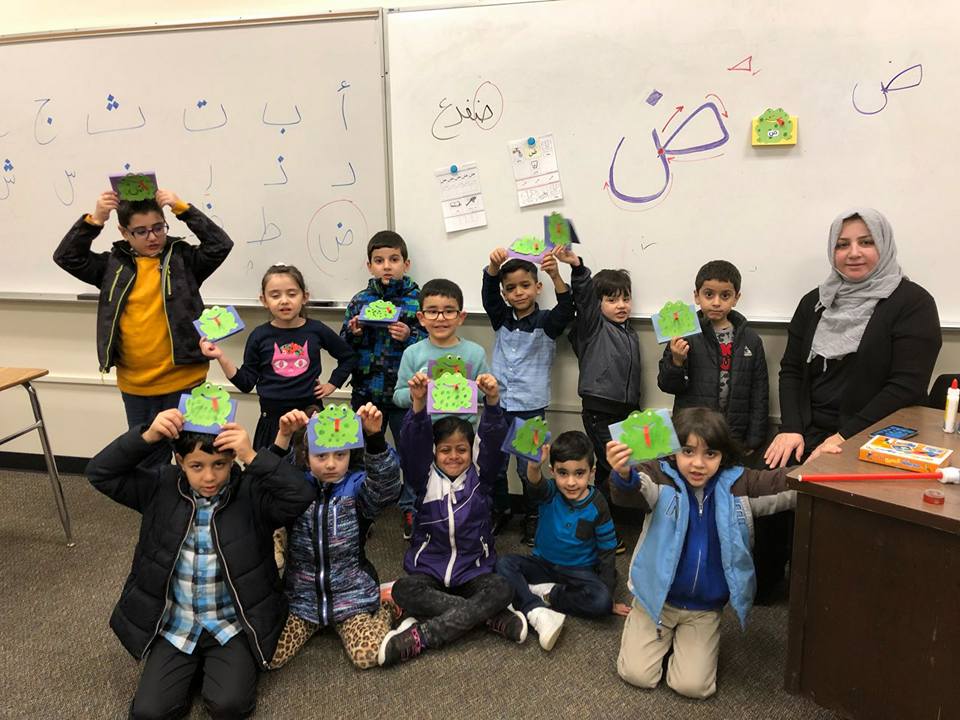Lensé Esheté is struck by the love that is the foundation of her organization. “We make our constituents feel like they have a home, where they can go and be understood.” For the Iraqi Community Center of Washington (IRCCW), this is not a hyperbole. Serving immigrant and refugees from Iraq, IRCCW is an organization that was formed by community members in order to meet the needs of their peers and continues to be steered by immigrant and refugee participants. IRCCW often pays for the US accreditation for newly arrived Iraqis whose degrees and licenses don’t easily transfer. The data systems manager at the organization wasn’t able to find work with foreign credentials, so IRCCW paid for his certification. He made his way back into the organization as a staff member because “it just felt right.”
At this year’s Eid al-Fitr celebration, the staff was expecting about two hundred people—and they wound up seeing almost three hundred, including one hundred kids. All of the food was provided by community members, who also came early to set up and decorate. These folks don’t just come to IRCCW’s programs, they are the programs.
The outpouring of love flows over into the office space, where members bring food to share and say thank you. They are appreciative of the organization, but moreover “there is a sense of family, and this organization is home.” Lensé is a Program Coordinator in IRCCW’s out-of-school-time programming, which is funded through King County’s Best Starts for Kids initiative. She knows that the Iraqi immigrant and refugee communities that she works with come to IRCCW to feel understood.
There is a sense of family and this organization is home.
Lensé Esheté, Education program Coordinator
Recently, the organization received calls from a parent of a student who goes to a local Kent school. “They don’t feel heard. They try to go to the schools and advocate for their kids, but meet a dead end.” Cultural and linguistic barriers make it challenging for immigrant and refugee students to get their needs met. The student Lensé was talking to me about was often described by her teachers as hyper and distracted, who often left class to go to the bathroom and was labeled a disturbance to other kids. IRCCW met with the family and then accompanied them to a meeting with the school, where it was discussed that the student had ADHD and bladder issues.
There were clear medical explanations for her behavior, and IRCCW was able to broker a conversation about what meaningful support for the student would look like. Last month, she started at a school that’s structured more appropriately for her, and, “feels heard and well-served by her teachers.” The trust and support of IRCCW were vital in meeting the needs of this family.

This spirit of family, home, and love is also in the afterschool program that Lensé runs. This year, a fifth-grade boy started in the program who was reading around a first or second-grade level. IRCCW was able to work with his school to obtain his reading scores and have developed an individualized literacy plan for him. Every session, staff reads with him for twenty minutes—and his scores have jumped up to a third-grade level.
As one of the older students in the program, he’s now engaged in leadership work and is helping support the younger kids in their reading. Lensé remarks that his improved literacy skills are also boosting his social aptitude. IRCCW provides both English- and Arabic-language literacy programming, and it’s proven that multilingual education exponentially benefits language acquisition. And for the immigrants and refugees that IRCCW serves, it also preserves cultural ties and keeps the program relevant and relatable.
When I ask Lensé what she wants people to know about the out-of-school time field, she stresses that it’s not only there to serve kids who are falling behind academically. “Some parents from different cultures have the misconception that kids who attend ‘aren’t smart enough’. These programs are for any kids who want more interaction and more learning opportunities.”
